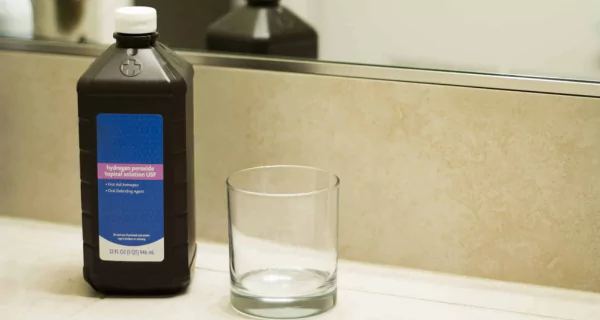Last Updated on: 19th September 2025, 12:36 pm
Yes, Tylenol can help relieve mild to moderate tooth pain. It works by blocking pain signals in the brain but doesn’t reduce inflammation or treat the root cause. Tylenol is most effective for minor cavities, gum irritation, or post-procedure soreness. However, for severe pain, infections, or swelling, other medications or professional dental care may be necessary.
Does Tylenol help tooth pain? Discover how Tylenol works: its benefits, and alternative remedies to relieve tooth pain effectively.
Tooth pain is one of the most disruptive and excruciating experiences, capable of derailing your day or night, when you least expect it. Whether it’s a throbbing ache that hits before an important meeting or an agonizing twinge waking you up in the middle of the night, the discomfort can make it nearly impossible to eat, sleep, or focus.
In these moments of desperation, many people instinctively turn to Tylenol for quick relief. But how effective is Tylenol for tooth pain?
In this article, we’ll uncover the science behind its pain-relieving properties, compare it with other options, and share practical tips to help you better manage the discomfort.
How does Tylenol help with tooth pain?
Tylenol, or acetaminophen as it’s generically known, is one of the most widely used over-the-counter pain relievers. Its effectiveness comes from its ability to disrupt how pain signals are processed in the brain, offering relief without directly addressing the source of the pain.
The science behind Tylenol
The active component, acetaminophen, works by reducing the production of prostaglandins, natural chemicals in the body that trigger pain and inflammation. Unlike medications such as ibuprofen or aspirin, which also target inflammation, Tylenol focuses solely on alleviating pain, making discomfort more bearable.
For tooth pain caused by cavities, gum inflammation, or minor dental procedures, Tylenol can provide short-term relief. However, it’s important to note that while Tylenol can help manage symptoms, it doesn’t treat the root cause of the issue. Persistent pain is a clear sign that it’s time to consult a dentist for a proper diagnosis and treatment.
When Tylenol works best
- Minor cavities: Tylenol is effective for relieving the dull, persistent ache caused by small cavities. While it doesn’t address the cavity itself, it can make the discomfort more manageable until you can see a dentist.
- After dental procedures: Following minor dental work, such as fillings, routine cleanings, or other non-invasive treatments, Tylenol is often recommended to alleviate lingering soreness or sensitivity.
- Gum irritation: If your gums are swollen, tender, or sore, whether due to mild irritation, brushing too hard, or early-stage gum issues, tylenol can help by reducing the discomfort.
When Tylenol might not be enough
While Tylenol can effectively manage mild to moderate toothaches, there are situations where it may fall short and additional treatment is necessary:
- Severe infections: Tylenol won’t address infections or swelling from abscesses, which often require antibiotics and stronger medications.
- Wisdom tooth pain: While Tylenol can help dull the ache from erupting or impacted wisdom teeth, the pain often stems from pressure, inflammation, or infection that requires more targeted interventions, such as extraction or other dental treatments.
- Nerve-related pain: Shooting or electric-like pain from exposed nerves may require a combination of pain relievers or dental procedures.
For severe tooth pain or discomfort that doesn’t improve with Tylenol, it’s crucial to seek professional dental care to identify and treat the underlying problem effectively. Tylenol can offer temporary relief, but it’s not a substitute for addressing the root cause.
How to use Tylenol safely for tooth pain?
Taking Tylenol for tooth pain may seem straightforward, but using it correctly is essential to prevent potential risks, particularly liver damage, which can occur with excessive use of acetaminophen. Here’s how to use it safely:
Dosage recommendations
- Adults: The typical dose is 500–1,000 mg every 4–6 hours as needed, with a maximum limit of 3,000 mg within 24 hours.
- Children: Always follow age- and weight-specific instructions provided on the packaging or by a healthcare provider. Overdosing in children can be especially dangerous, so precise dosing is critical.
Key safety tips
- Avoid mixing medications: Do not combine tylenol with other medications containing acetaminophen to avoid accidental overdose.
- Limit alcohol consumption: Drinking alcohol while taking Tylenol increases the risk of liver damage, so it’s best to avoid alcohol entirely during use.
- Stick to the recommended dose: Taking more than the advised amount won’t provide extra pain relief and could seriously harm your health.
If you’re unsure about dosages or have existing medical conditions, consult a healthcare professional before taking tylenol.
Which pain reliever is best for tooth pain: Tylenol, ibuprofen, or aspirin?
Tylenol is not the only over-the-counter option for managing tooth pain. Alternatives like ibuprofen and aspirin are also commonly used. Here’s a comparison of their effectiveness to help you decide which one might work best for your situation:
Tylenol (acetaminophen)
- Pros: Gentle on the stomach and effective at blocking pain signals in the brain. Provide relief from mild to moderate tooth pain.
- Cons: Doesn’t reduce swelling or inflammation, which are often key contributors to tooth pain.
Ibuprofen (Advil)
- Pros: Both a pain reliever and an anti-inflammatory, making it ideal for swelling-related tooth pain.
- Cons: Can irritate the stomach lining, especially when taken on an empty stomach, and may not be suitable for people with certain gastrointestinal conditions.
Aspirin
- Pros: Combines pain relief with anti-inflammatory benefits.
- Cons: Not recommended for children or those at risk of bleeding issues. Can increase bleeding risks, making it unsuitable for people with blood clotting disorders or those preparing for dental surgery.
Choosing the right pain reliever
If inflammation is a significant factor in your tooth pain, ibuprofen or aspirin might provide better relief due to their anti-inflammatory properties. However, if you have a sensitive stomach or conditions that make NSAIDs (nonsteroidal anti-inflammatory drugs) unsafe, Tylenol is a safer choice. Always consider your medical history and consult a healthcare professional if you’re unsure which medication is best for you.
When should you avoid tylenol for tooth pain?
While Tylenol is safe and effective for many, there are situations where it may not be the best choice:
- Liver issues: If you have liver disease, a history of liver damage, or consume alcohol heavily, avoid Tylenol unless recommended by a doctor, as it can increase the risk of liver toxicity.
- Medication interactions: Be cautious if you’re taking medications like blood thinners or other drugs containing acetaminophen, as combining them can lead to overdose or adverse effects.
- Persistent or worsening pain: If your tooth pain doesn’t improve or gets worse, it may signal a serious issue like an infection that requires professional dental care.
- Pregnancy or breastfeeding: While generally safe, it’s best to consult your healthcare provider before using Tylenol during these periods.
- Unclear pain source: If the pain’s origin is uncertain, Tylenol could mask symptoms that a doctor or dentist needs to evaluate.
When in doubt, consult your healthcare provider to ensure Tylenol is the right option for you.
What are natural and at-home alternatives to Tylenol for tooth pain?
If you prefer to explore non-medication options or complement Tylenol for enhanced relief, several at-home remedies can help soothe tooth pain temporarily:
- Saltwater rinse: Mix 1/2 teaspoon of salt into a glass of warm water and use it as a mouthwash. This simple remedy reduces bacteria, soothes irritated gums, and draws out excess fluid from inflamed tissues.
- Cold compress: Apply an ice pack wrapped in a cloth to the painful side of your face for 15-20 minutes. This helps numb the area, reduce swelling, and provide temporary relief.
- Clove oil: Containing eugenol, a natural anesthetic and antiseptic, clove oil can be applied with a cotton ball to the affected area for quick pain relief.
- Hydrogen peroxide rinse: Mix equal parts of 3% hydrogen peroxide and water to use as a mouth rinse. It helps kill bacteria and reduce inflammation, but avoid swallowing the solution.
- Over-the-counter gels: Products containing benzocaine can temporarily numb the area, offering immediate relief from pain and discomfort.
While these methods won’t address the root cause of your tooth pain, they can help manage symptoms until you can visit a dentist for professional treatment.
When to see a dentist?
While Tylenol and home remedies can help manage tooth pain temporarily, they only address symptoms and not the root cause. Persistent or severe tooth pain often signals an underlying issue that requires professional dental care. You should contact your dentist if:
- The pain persists: If the discomfort lasts longer than two days without improvement, it’s a sign that the issue won’t resolve on its own.
- You notice signs of infection: Swelling, fever, or pus around the affected area could indicate an infection that may spread if not treated promptly.
- The pain is severe: Intense pain that disrupts your ability to eat, sleep, or focus needs immediate evaluation to prevent further complications.
Ignoring tooth pain can lead to serious consequences, such as infections that spread to other areas or permanent damage to teeth and gums. Seeking timely dental care ensures the problem is properly diagnosed and treated, preventing long-term issues.
Conclusion
So, does Tylenol help with tooth pain? Absolutely. Tylenol is a reliable option for managing mild to moderate discomfort by blocking pain signals and providing quick relief when you need it most. However, it’s important to remember that Tylenol doesn’t address the root cause of the pain, which requires professional evaluation and treatment.
Whether you choose Tylenol, ibuprofen, or a combination of over-the-counter medications and natural remedies, these options are only temporary solutions. For long-term relief and to prevent complications, your best course of action is to consult a dentist and take proactive steps to protect your oral health.
Frequently Asked Questions
Can I take tylenol before seeing a dentist?
What’s the best tylenol dosage for a toothache?
Can tylenol reduce swelling in the gums?
How long does it take for Tylenol to work on tooth pain?
Is Tylenol safe for kids with toothaches?
Voice and Search (Q&A)
Does Tylenol work for wisdom tooth pain?
Yes, Tylenol can relieve mild wisdom tooth pain, but if there's swelling or infection, it may not be enough. In those cases, ibuprofen or a visit to the dentist is usually necessary.
Can I combine Tylenol with ibuprofen for tooth pain?
Yes, combining Tylenol and ibuprofen can offer better relief than using either alone. Just be sure to follow proper timing and dosages, and consult a healthcare provider if you're unsure.
What happens if I take too much Tylenol for tooth pain?
Taking more than the recommended dose can lead to liver damage. Stay under 3,000 mg per day and avoid using other medications that also contain acetaminophen.
Share
References
1. ADA. (2024, February 2). Oral Analgesics for Acute Dental Pain. American Dental Association. https://www.ada.org/resources/ada-library/oral-health-topics/oral-analgesics-for-acute-dental-pain
2. Kim, S., & Seo, J. T. (2020, March 19). Selection of analgesics for the management of acute and postoperative dental pain: a mini-review. Journal Of Periodontal & Implant Science, 50(2), 68. https://doi.org/10.5051/jpis.2020.50.2.68
3. Sawyers, T. (2024, january 30). How to Get Rid of a Toothache at Night. Healthline. https://www.healthline.com/health/how-to-get-rid-of-toothache-at-night
4. Watson, S. (2024, december 19). What Is the Best Toothache Medicine? Verywell Health. https://www.verywellhealth.com/otc-dental-pain-relief-1059309
-
Nayibe Cubillos M. [Author]
Pharmaceutical Chemestry |Pharmaceutical Process Management | Pharmaceutical Care | Pharmaceutical Services Audit | Pharmaceutical Services Process Consulting | Content Project Manager | SEO Knowledge | Content Writer | Leadership | Scrum Master
View all posts
A healthcare writer with a solid background in pharmaceutical chemistry and a thorough understanding of Colombian regulatory processes and comprehensive sector management, she has significant experience coordinating and leading multidisciplina...




















